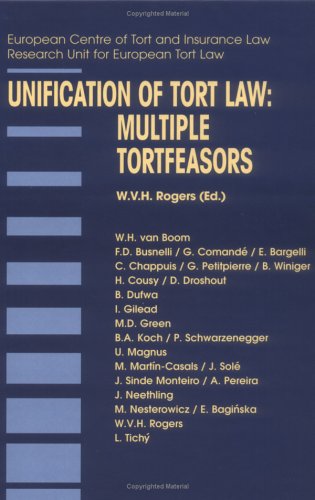
The foundations of tort law differ considerably in the various European legal systems. For a number of years a group of tort law experts, the European Group on Tort Law, has been engaged in a systematic examination of the fundamental questions of tort law with a view to formulating principles which will contribute to a common law of Europe. Although the work has been centred on Europe, it has been informed by contributors from a number of overseas systems. This is the ninth volume in a series setting out the results of the work of the Group: earlier volumes have covered matters such as wrongfulness, causation, contributory negligence and liability for others.
In this volume, the authors provide an overview of the law governing multiple tortfeasors (the situation where the victim of a tort contends that more than one person is responsible for an injury suffered by him) seen from the angle of fifteen legal systems. The law has two aspects: the ¿external¿ one relating to the relationship between the victim and the tortfeasors, particularly the question of how far each is liable to the victim for the whole damage; and the ¿internal¿ relationship of the tortfeasors, raising issues of recourse inter se. Each country report consists of an account of the theoretical basis of the law in this area, together with an examination of its operation via a variety of factual situations. There is also a comparative report which summarizes the most important elements identified by the country reports and identifies the existing common ground.
This volume provides the legal scholar and the practitioner with a wealth of information and insights on a complex and controversial area of law in an accessible form.